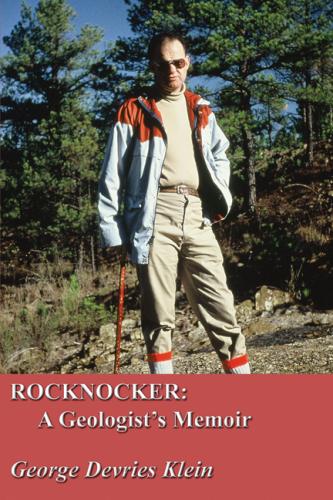Frederickson, however, was opposed and the dean reminded him one doesn’t ask someone who was just denied tenure to give up their summer research plans, and because a termination notice was given to me, the resignation was accepted automatically. Halliday told me later he also informed Frederickson that he would have to investigate one of his equipment purchases because there was a complaint. Halliday disclosed to me earlier that Frederickson had become a problem because he became close to Litchfield and was going past Deans and Vice Chancellors to get things outside normal protocol.
When I returned from AAPG, I received a phone call from Howard A. Meyerhoff (BS, Illinois, PhD, Columbia, geomorphology; Smith College, U.S Manpower Commission, Pennsylvania) about my application for a faculty appointment at the University of Pennsylvania. Howard was appointed chairman in January, 1963, cleared the decks, and fired all but one person. He invited me to interview. I flew to Philadelphia early on a Thursday in mid-April.
I arrived and we talked for two hours. Meyerhoff taught for many years at Smith College, mapped Puerto Rico for the U.S.G.S. and during World War II, moved to Washington to head the US Manpower Commission where he remained until December, 1962. He was recruited by Penn’s president, Gaylord Harnwell, to return to academe that winter. He explained that because he had no faculty for me to meet, I would meet with a special search committee consisting of the Provost, David R. Goddard (PhD, UCB; botanist; Univ. of Rochester, Penn, Member of National Academy of Science), Ray Nichols (Dean of Graduate School, Pulitzer Prize Historian), and Otto Springer (Dean, College of Arts and Sciences, PhD. Gottingen; Germanic literature).
We walked to College Hall where the offices of the College of Arts and Sciences were housed and went to the Dean’s conference room. Springer was already there and we were soon joined by Nichols. Goddard arrived five minutes later.
The provost did the interviewing and after explaining he knew a number of paleobotanists and learned about geology from them, he asked me to explain sedimentology. I talked about four components of sedimentology: clastics and carbonates, and ancient and Recent sedimentology. He understood.
He then pulled out my publication list and read each title. Goddard asked me to identify where I did the research, what was thesis related, what work was done after leaving Yale, and when I had done the work. I gave him answers (the first publication was work completed after leaving Yale). Clearly, he wanted to know whether I was coasting, or whether after leaving Yale I continued new research every place I worked and was contributing new science to my field.
After discussing other things, the Provost said, "George, if we hire you, we may not be able to hire a second sedimentologist for many years. What kind of background should we look for when making our selection?"
I explained that they should consider a person who either completed research and published about BOTH ancient and modern clastics, as well as EITHER ancient or modern carbonates, or someone who had worked on BOTH ancient and modern carbonates, and EITHER ancient or modern clastics.
Goddard picked up my publication list again and asked me to identify which of the four topics the papers were about. The first five he named were either ancient or modern clastics. Then he read the title of my Nature paper and I said "Ancient Carbonates." He stopped, looked at his watch, mumbled about having to leave for another appointment, said good bye to me, and asked Meyerhoff to come with him. I stayed with the two deans.
Howard returned shortly afterwards, and after finishing the interview with the deans, Howard and I left. Once out the door Howard told me, "George the Provost wants me to hire you. His comment was ‘Klein is the first Yale PhD I met in my entire career (about 25 years) who has published several papers besides his thesis within the first three years of completing his degree. Make sure he leaves town accepting our offer’."
I knew accepting an offer at Penn had its risks. Space was at a premium and being renovated. I had not met Lehman, the mineralogist who was staying, and had no idea who else was coming. There were many loose ends. I accepted the offer strictly because of the strength of reputation of the university. I believed that with Penn’s overall reputation behind me, I should be able to advance my career in geology and either make the place into something better, geology-wise, or find another place in time that would provide a better opportunity. I was only 30 years old, had a long career ahead of me, and was confident that the future would turn out positively for me. The nationwide trend in Higher Education was one of expansion and consequently, there would be other opportunities. All I needed to do was work hard, keep doing research, keep publishing, and do the things I was good at.
Конец ознакомительного фрагмента.
Текст предоставлен ООО «ЛитРес».
Прочитайте эту книгу целиком, купив полную легальную версию на ЛитРес.
Безопасно оплатить книгу можно банковской картой Visa, MasterCard, Maestro, со счета мобильного телефона, с платежного терминала, в салоне МТС или Связной, через PayPal, WebMoney, Яндекс.Деньги, QIWI Кошелек, бонусными картами или другим удобным Вам способом.
